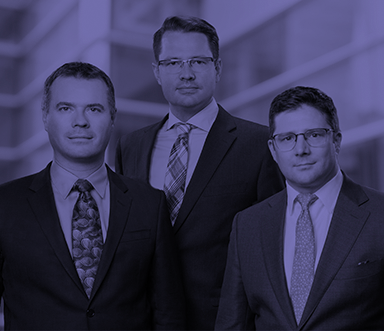Settling family law matters quickly and effectively without the need for extensive litigation is in most people’s interests, including family law judges and the family court system in Alberta.
As such, Alberta family law litigants are generally encouraged to seek resolutions using alternative dispute resolution methods, such as mediation, before matters end up at trial.
Non-adversarial methods can help to resolve divorce matters, family disputes involving children and other potentially high-conflict family law matters.
Since 2018, the Court of King’s Bench of Alberta has promoted a new program called the Early Intervention Case Conference (EICC) to assist with this.
What are EICCs?
Early Intervention Case Conferences are intended to prevent family law matters from escalating and ending up in high-conflict trial situations that may be detrimental to Alberta families.
They also help to relieve the pressure on the overworked family law courts in Alberta and prevent delays in settling disputes.
The early intervention scheme started as a pilot in 2017 in Calgary, Edmonton, Red Deer, Lethbridge, and Medicine Hat. The concept proved successful in the vast majority (around 80 percent) of cases and led to a reduced level of conflict between spouses and partners.
Consequently, the strategy has been implemented across Alberta, with EICCs available as an option for both self-represented individuals and those with legal representation. Typically, matters addressed include child support, spousal support, parenting and property division.
Partners or spouses can choose to attend an Early Intervention Case Conference, or judges in Alberta have the power to order attendance at an EICC for matters brought before the court.
The main goal of the case conference is to explore the possibility of a settlement in a mediation-like setting. More specifically:
- To see if the parties can settle some or all of the matters that they have not been able to resolve.
- To talk about options to settle matters in a way that may not be available in a more formal court proceeding.
- If settlement is not possible, to hear what the Judge thinks about the strengths and weaknesses of each party’s case and what might happen if matters must go to a more formal court proceeding or a trial.
- If settlement is not possible, to try to reduce the number of matters that have to go to a more formal court proceeding or trial.
If settlement is not possible, to talk about ways to reduce the cost and time of the court proceeding or trial.
What is the format of an Early Intervention Case Conference?

You will first receive details of the date and time of the court meeting. If you cannot attend at that time, let the Case Conference Coordinator know or you may be fined or otherwise sanctioned by the judge.
Until the conference has been held, you may not be able to take any other step in your court case without the permission of a judge.
The conferences generally last around an hour and are overseen by a Justice of the Court of King’s Bench of Alberta.
While they do take place in a courtroom (or by video if in-person participation is not possible), they are designed to be private and much less formal than trials — more akin to mediation sessions. No formal evidence is presented and neither party can order a transcript of the proceedings. The judge does, however, sit on a raised platform and directs the disputing parties on how their matter can be resolved.
You must attend the case conference in person but if you have legal representation, your lawyer can (and should) attend with you. Before your case conference, the judge will read a summary of the dispute so that he/she is familiar with your case.
The format of the case conference is split into two main components:
- A procedural component, which could result in an immediate order being issued (if both parties are in agreement).
- A settlement discussion component held on a without prejudice basis (i.e., solutions discussed or offers made cannot be used in future court proceedings).
During the EICC, the judge will direct discussions on ways to resolve your dispute without seeking more formal litigation. If some or all of your matters are settled, these will be confirmed in a Report from the Case Conference Justice, which will be emailed to each party.
If no consent order is possible, the judge may make procedural orders to progress the matter in the manner deemed most likely to produce a positive outcome. This may include orders to file or exchange more information.
What are the pros and cons of an Early Intervention Case Conference?
Main pros:
- Can save time and money for disputing parties
- Reduces clutter in the Alberta family court system
- Reduces the impact on children
- Less stress for all parties involved
- Less formal than a court trial
- No affidavits is necessary
- Even if the main issues cannot be resolved, ancillary matters may be agreed
- If no agreement is reached, there is no fear for either party of an order being made against them
- Can attend without legal representation
Main cons:
- Unlike mediation, an EICC is held in a courtroom with a judge presiding (more formal)
- No guarantee that a resolution will be reached
- Not available in situations involving domestic violence
How do you prepare for EICC in Alberta?
To prepare for an EICC in Alberta, you’ll need to take the following steps:
- Provide the other party with any documents or other information listed in the Order for your Case Conference.
- Provide any other documents needed by either party to address the matters in dispute.
- Provide any other relevant up-to-date income information to the other party.
- Complete a Case Conference Summary, which will provide each party and the judge with an overview of the disputed matter.
- Provide a copy of the summary to the other party and the Case Conference Coordinator at least seven days before the date of the EICC.
You can ask your family or divorce lawyer for assistance with completing these necessary steps.
The experienced divorce lawyers at Jennings Family Law in Calgary provide practical divorce solutions in the best interests of our clients. Book a case evaluation to discuss your legal options.




